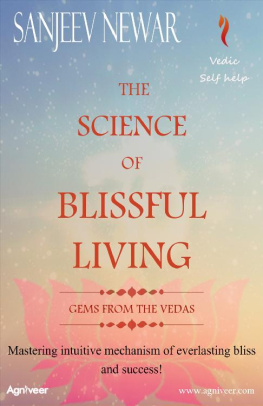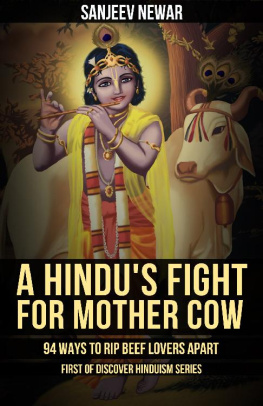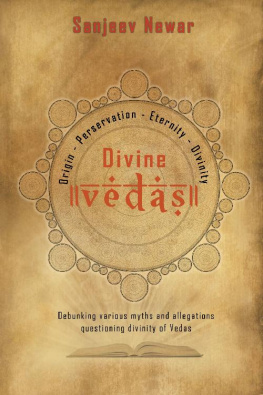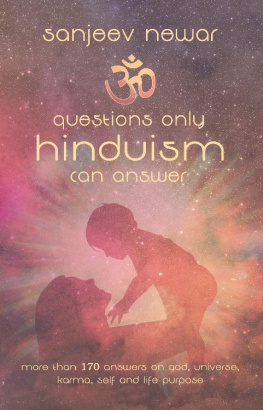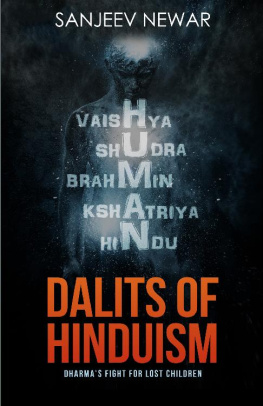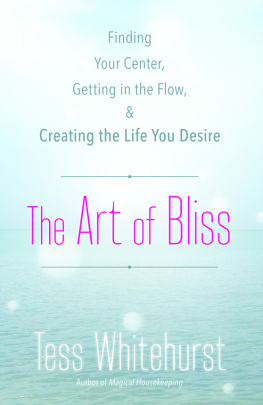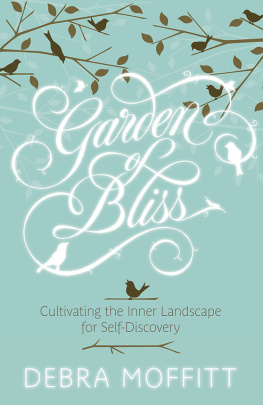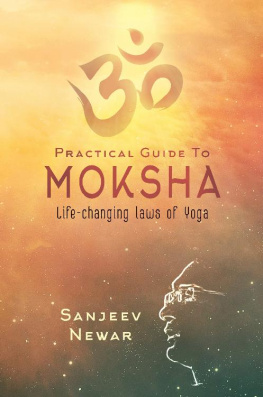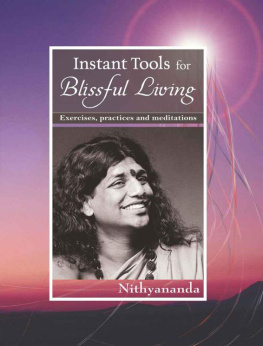THE
SCIENCE
OF
BLISSFUL
LIVING
Mastering intuitive mechanism of everlasting bliss and success!
SANJEEV NEWAR

THE SCIENCE OF BLISSFUL LIVING
Copyright 2016 by Agniveer
All rights reserved. This publication may not be reproduced, stored in a retrieval system, or transmitted in whole or in part, in any form or by any means, electronic, mechanical, photocopying, recording, or otherwise, without the prior written permission of Agniveer.
This publication is designed to provide accurate and authoritative information in regards to the subject matter covered.
For information contact
books@agniveer.com
Book Design and Composition by Ronak Trivedi
First Edition: May 2016
Preface
There are only two motives behind each human act. Either to get rid of pain or to attain the state of bliss. Throughout life, most of us remain trapped only in one set of actions actions to get rid of pain. Very few of us can actually manage to bring our life in a bit better position where a big portion of our actions is only for attaining bliss. However, after a certain point in our life, we struggle to maximize or even struggle to sustain the level of bliss. This stagnation, as a result, itself becomes the cause of pain for us. And then, we get trapped again in the same set of actions - actions to get rid of pain.
Jumping back and forth from the state of misery to the state of bliss continues throughout our life. This eventually becomes unavoidable frustration because most of us do not understand the mechanism of maximizing and sustaining the level of bliss.
The state of bliss can not be attained without worthwhile actions. Worthwhile actions can not be conducted without noble life purpose. Noble life purpose can not be found without understanding the purpose of life. And only when we know our relationship with God and the nature, the purpose of our life becomes clear.
The Science of Blissful Living,' the first book under Vedic Self-Help series, brings forth the fundamental concepts of Vedas which expounds this mechanism of maximizing and sustaining bliss in most lucid manner. It helps us understand the world around and gives us practical tips on what role we should play to live a purposeful life and maximize our happiness.
The book is divided into three self-help sections:
- Understanding basic framework of attaining bliss
- Practical tips on living meaningful life
- Strengthening mind and will power
At the beginning of each of these sections, a brief introduction has been given regarding the subject covered in that section.
Though most chapters of the book explain the life-transforming wisdom from Vedic Mantras, the book does not demand readers to have mastery over Vedas. The book will be useful to anyone, who is not quite adept in Vedic subjects. Readers are not required to have any prior background except an inclination towards a scientific and objective approach towards life and living, and ambition to maximize purposefulness and happiness in life.
The book promises to be a vaccination against tension, depression, frustration, exhaustion and purposelessness. If one commits 100% to study and implement the knowledge covered in this book, I can promise that this would be the only self-help anyone would ever need.
Enjoy the journey towards your bliss!
Sanjeev Newar
07 May 2016, New Delhi
Contents
SECTION 1

UNDERSTANDING BASIC FRAMEWORK
In this first section, we will understand the very basic framework and concepts/principles of Vedic self-help necessary to kick start the process of attaining bliss. This section is more about developing a theoretical understanding of the true nature of human being. Without discussing any Vedic Mantra, this thought-provoking section will inspire us for knowledge acquisition and knowledge enhancement - A first step towards the journey of enlightenment.
Chapter 1
TRUTH = BLISS
Idam aham anritaat satyam upaimi
I shall move away from falsehood towards truth=bliss.

T he very first principle of Vedic philosophy is that truth and bliss are synonymous. The root Sat denotes truth in word Satya. The root Sat also denotes bliss in word Sadgati. This principle forms the core foundation of the entire Vedic framework. In fact, this search for bliss through the discovery of truth defines an essential trait of human life. The entire progress of science and attempts made by human beings to know the world better is driven by this urge to achieve bliss through truth . This urge to find the truth defines our humanness. In fact, in Sanskrit, humans are called Manushya , which literally means one who can analyze or evaluate truth.'
Illusion of bliss
Now, often we see that illusions and ignorance also bring bliss. The entire entertainment industry and even most of the cults thrive on gaining by providing bliss to masses through illusion and ignorance. Attaining bliss through ignorance and illusion seems to contradict the principle of truth and bliss being synonymous. In fact, this has led to many philosophers to believe that bliss is merely a matter of perception and one cannot assess the same on the parameter of true or false, or on the parameter of right or wrong. From a restricted standpoint, they are right as well.
We shall be able to address this apparent paradox subsequently as we learn about some more fundamental principles of Vedic philosophy. However, to provide some hints, consider the fact that truth and bliss do not represent absolute points. They represent a journey. They represent a path of progress. They represent a process. Thus, technically speaking, knowledge is another term to define the process that leads us to truth. To simplify, we can treat them as synonymous.
We enjoy apparent illusions because while we are enjoying them, we consider them as truth, based on our limited understanding and capabilities. So far, an illusion appears to be true, or ignorance appears to be knowledge, we tend to enjoy them. But as our knowledge and understanding increase, we are no more able to enjoy what was bliss yesterday. We no longer enjoy putting fingers in switchboards that we used to do when we were infants, simply because new knowledge has dawned upon us. Even as children the food we used to enjoy are not the ones we enjoy as grown-up adults. Our food preferences change, our reading habits change, our hobbies change, our aspirations change. All these changes because we now possess more knowledge. Hence, only those things that suite to our enhanced levels of knowledge provides us bliss.
Same level of bliss brings boredom
We should also consider the fact that the same level of bliss provided again and again makes us bore again. Thus, the same tasty sweet eaten repeatedly seems to degrade the level of happiness we used to derive from its taste. We now need a change. We want to grow. The small infant had had enough of blabbering lying on the couch. The infant now wants to stand up and try to walk. It wants to explore more. And it shall do that regardless of the number of times it falls down or gets hurt. It shall simply not give up until it can stand up, walk, run and jump. The basic nature of the soul is at full steam in a child
Next page
